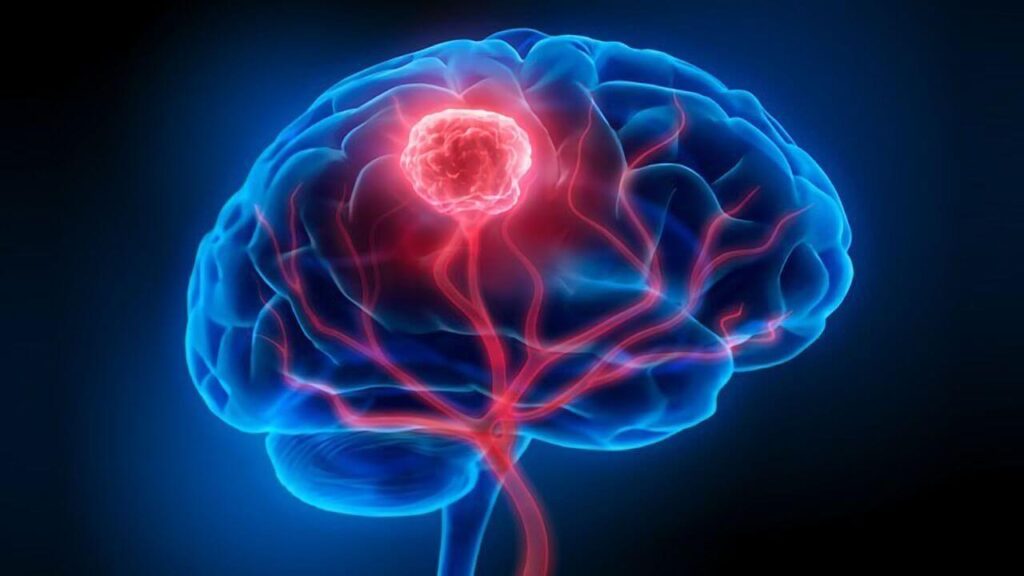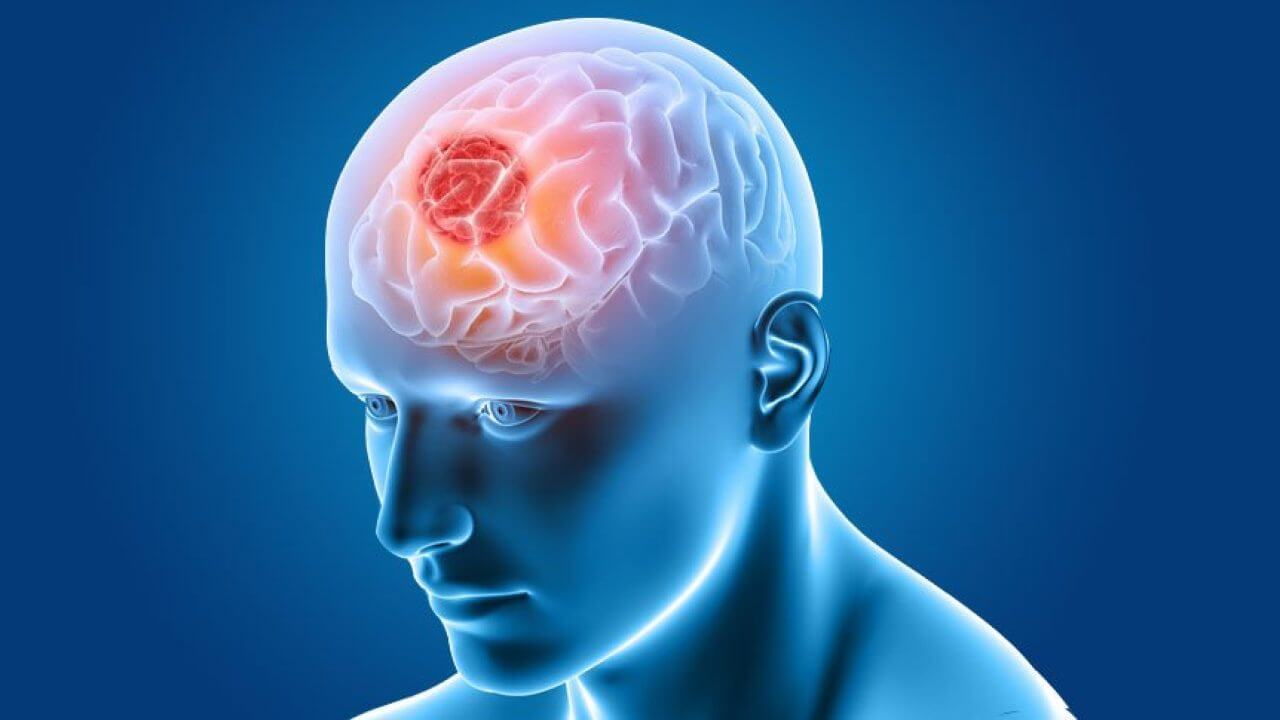A brain tumor is a mass or growth of abnormal cells in your brain.
Many different types of brain tumors exist. Some brain tumors are noncancerous (benign), and some brain tumors are cancerous (malignant). Brain tumors can begin in your brain (primary brain tumors), or cancer can begin in other parts of your body and spread to your brain as secondary (metastatic) brain tumors.
How quickly a brain tumor grows can vary greatly. The growth rate as well as the location of a brain tumor determines how it will affect the function of your nervous system.
Brain tumor treatment options depend on the type of brain tumor you have, as well as its size and location.

Types of Brain Tumors
Primary brain tumors come from cells that make up the brain and central nervous system. They’re named for the kind of cell in which they first form. There are more than 100 kinds of brain tumors. The most common types in adults are:
- Gliomas. These tumors start in the glial cells, which are cells that help keep nerves healthy. They’re most often cancer. There are several categories of gliomas, based on which specific cells they target. Astrocytomas are most common in adults. A glioblastoma is the most aggressive type of glial tumor.
- Meningiomas. These form in the meninges, the thin layer of tissue that covers the brain and spinal cord. They aren’t cancer, but they can cause problems by pressing on your brain.
- Schwannomas. These damage the protective coating of nerve cells. They aren’t cancer, but they often cause hearing loss or problems with balance.
- Pituitary adenomas. These form on the pituitary gland, which sits at the base of your brain. It makes important hormones. These tumors usually aren’t cancer and are slow growing.
Symptoms
The signs and symptoms of a brain tumor vary greatly and depend on the brain tumor’s size, location and rate of growth.
General signs and symptoms caused by brain tumors may include:
- New onset or change in pattern of headaches
- Headaches that gradually become more frequent and more severe
- Unexplained nausea or vomiting
- Vision problems, such as blurred vision, double vision or loss of peripheral vision
- Gradual loss of sensation or movement in an arm or a leg
- Difficulty with balance
- Speech difficulties
- Feeling very tired
- Confusion in everyday matters
- Difficulty making decisions
- Inability to follow simple commands
- Personality or behavior changes
- Seizures, especially in someone who doesn’t have a history of seizures
- Hearing problems
Brain Tumor TreatmentYour doctor will consider several things in deciding how to treat your brain tumor, including:
- Location of the tumor
- Size of the tumor
- Type of tumor
- Whether the tumor has spread
- Your overall health
- Potential complications




